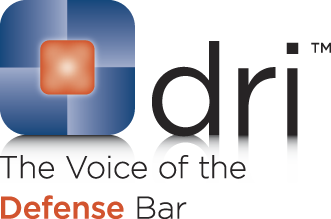I hope that it has never happened to you. But at some point in the operation of a trucking company, you might get the call that an employee driver has been involved in an accident and that the driver is intoxicated. In Nevada and in many other states, drunk drivers are not only subject to criminal sanctions and can be sued for causing injuries, but can also be assessed with punitive damages. Punitive damages are those damages meant not just to pay back the injured party, but to punish the wrongdoer. If you as the owner were facing such a situation, you should be asking yourself, “Am I going to get punished for the wrongdoing of my driver?”
In the case of Countrywide Home Loans v. Thitchner, 124 Nev. Adv. Op. 64 (2008) the Nevada Supreme Court explained when an employer could be held vicariously responsible for punitive damages based on the acts or omissions of its employees. In that case Countrywide Home Loans misidentified and foreclosed on a condominium unit owned by Gerald and Katrina Thitchner. After gaining possession, Countrywide disposed of all of the Thitchner’s personal belongings found inside the condo. Thereafter, Countrywide resold Thitchner’s condo to another.
While all this was going on in Nevada, the Thitchners were living in Arizona. Mr. Thitchner had been deployed by the Air National Guard to Tucson. His wife and children joined him there during the deployment.
The jury found that Countrywide breached its contract with the Thitchners. In addition to general and compensatory damages, the jury awarded the Thitchners $2,500,000.00 in punitive damages against Countrywide. The punitive damage award was reduced as a result of motion for remittitur. Ultimately final judgment was entered in an amount in excess of $3,000,000.00.
One of the questions considered was whether Countrywide should be liable for the punitive damages resulting from the mix-up caused by one of its employees. There was a dispute among the parties regarding what standard the jury should follow to determine whether Countrywide would have to pay those punitive damages.
The Thitcheners advocated for the standard set out in the case of Smith’s Food & Drug Centers v. Bellegarde, 114 Nev. 602, 958 P.2d 1208 (1998). This standard is found in the Restatement (Second) of Torts § 909 which provides:
Section 909. Punitive Damages Against a Principal.
Punitive damages can properly be awarded against a master or other principal because of an act by an agent if, but only if,
(a) The principal or managerial agent authorized the doing and the manner of the act, or
(b) The agent was unfit and the principal or a managerial agent was reckless in employing or retaining him, or
(c) The agent was employed in a managerial capacity and was acting in the scope of employment, or
(d) The principal or managerial agent of the principal ratified or approved the act.
Countrywide argued that the jury should be instructed based upon NRS 42.007 which reads as follows:
NRS 42.007 Exemplary and punitive damages: Limitations on liability by employer for wrongful act of employee; exception.
1. Except as otherwise provided in subsection 2, in an action for the breach of an obligation in which exemplary or punitive damages are sought pursuant to subsection 1 of NRS 42.005 from an employer for the wrongful act of his or her employee, the employer is not liable for the exemplary or punitive damages unless:
(a) The employer had advance knowledge that the employee was unfit for the purposes of the employment and employed the employee with a conscious disregard of the rights or safety of others;
(b) The employer expressly authorized or ratified the wrongful act of the employee for which the damages are awarded; or
(c) The employer is personally guilty of oppression, fraud or malice, express or implied.
If the employer is a corporation, the employer is not liable for exemplary or punitive damages unless the elements of paragraph (a), (b) or (c) are met by an officer, director or managing agent of the corporation who was expressly authorized to direct or ratify the employee’s conduct on behalf of the corporation.
2. The limitations on liability set forth in subsection 1 do not apply to an action brought against an insurer who acts in bad faith regarding its obligations to provide insurance coverage.
In the Thitchner case the Nevada Supreme Court determined that the Bellegarde “complicity rule” and the statutory standard set forth in NRS 42.007 were both viable legal theories that would vicariously apply punitive damages to another. They did clarify however that where an employer/employee relationship existed that the statutory standard should be the one that the jury is instructed on and not the Bellegarde complicity standard.
This left the Nevada Supreme Court in something of a pickle. The trial court had instructed the jury using the Bellegarde “complicity rule”. However, the Nevada Supreme Court said that there was no error because the jury, while using the other standard, could have readily found the defendant liable notwithstanding.
In conclusion, there are circumstances where an employer can be vicariously responsible for the punitive damages arising from the acts of an employee. Employers should make themselves aware of circumstances where that can happen and do their best to avoid situations that tend to send a message that they had either ratified or done other things in the list that would bring them under the potential for vicarious liability. If you have questions, Mills & Associates is here to help. Give us a call.
 Follow
Follow Email
Email


